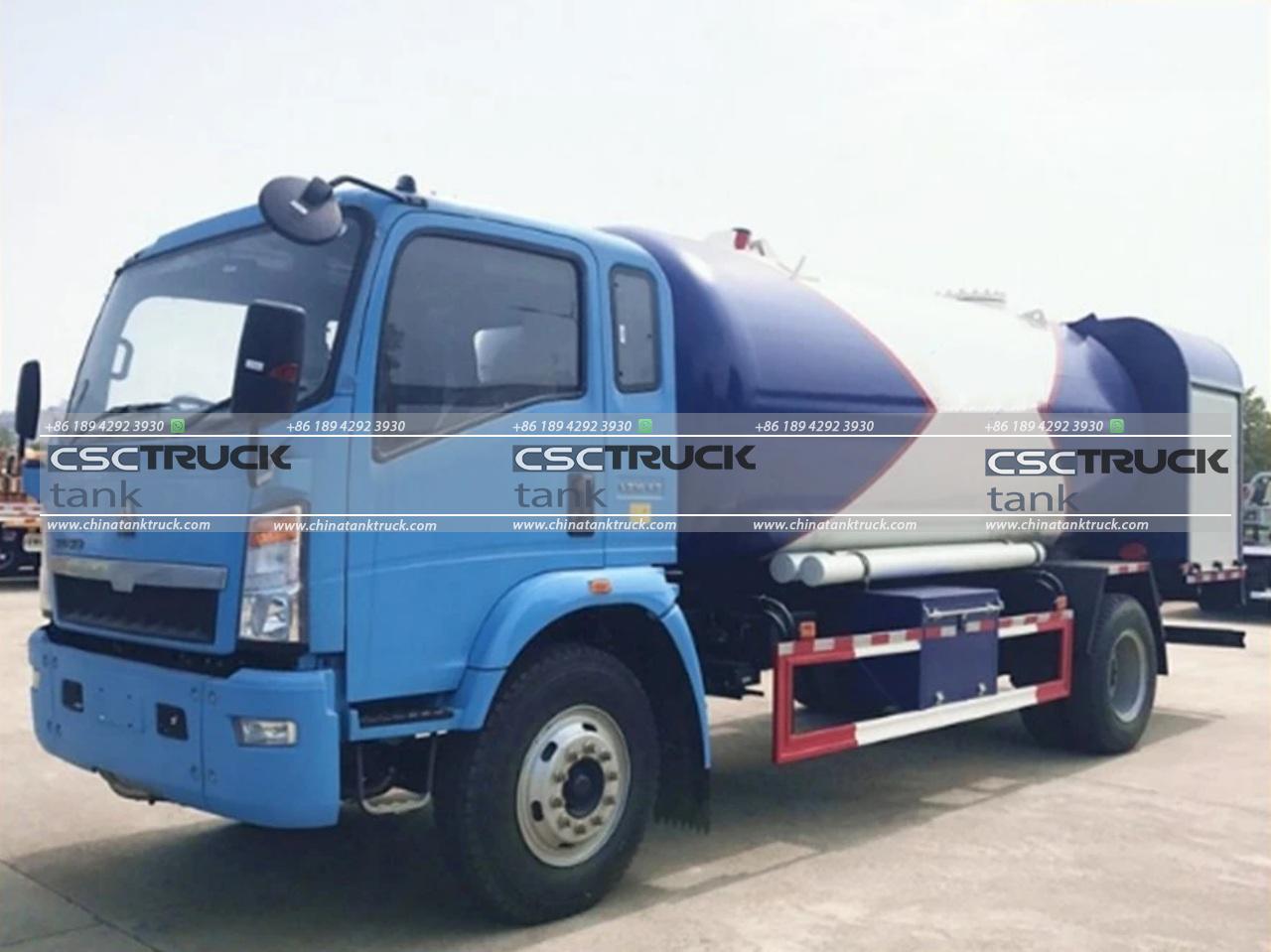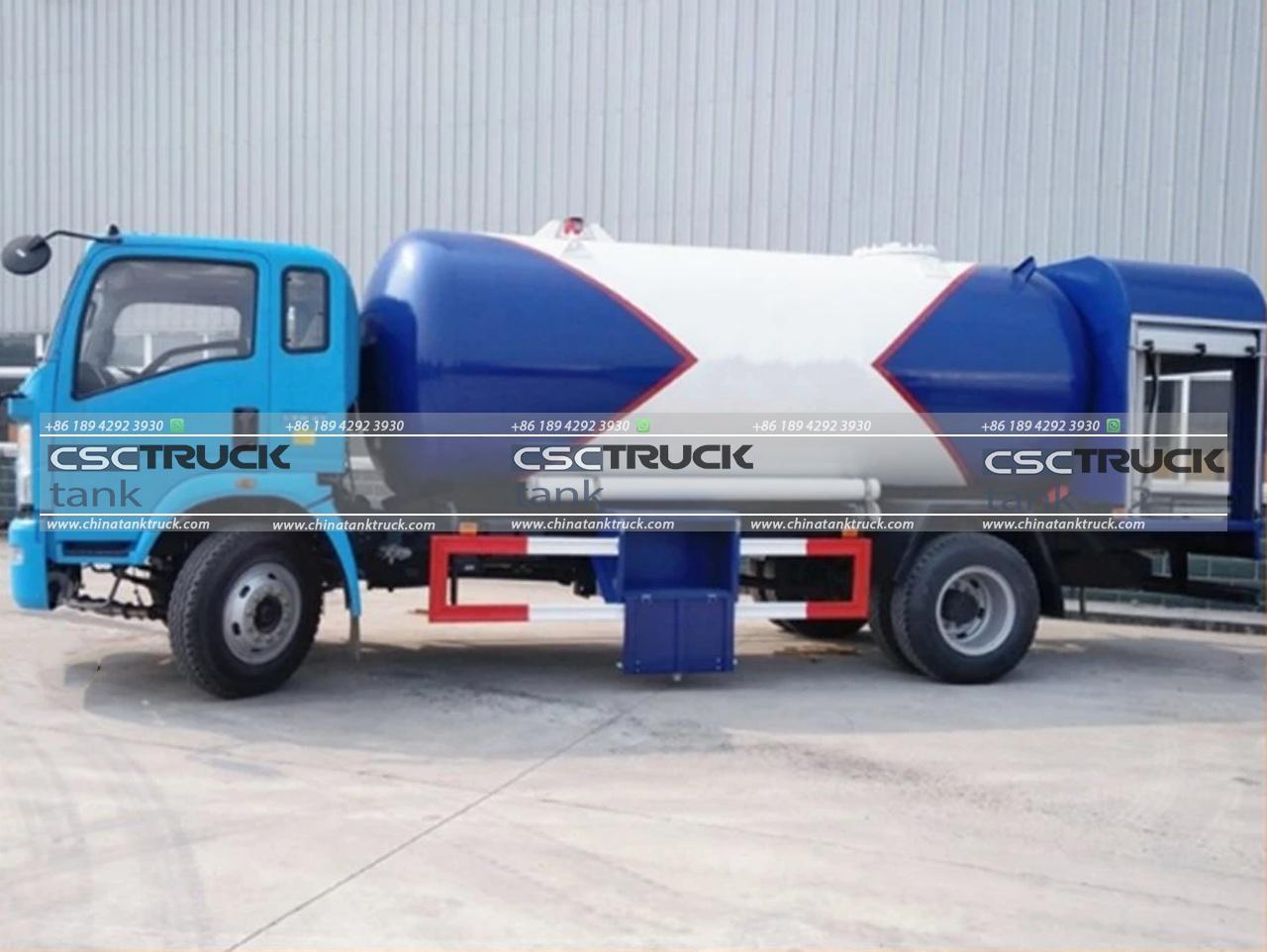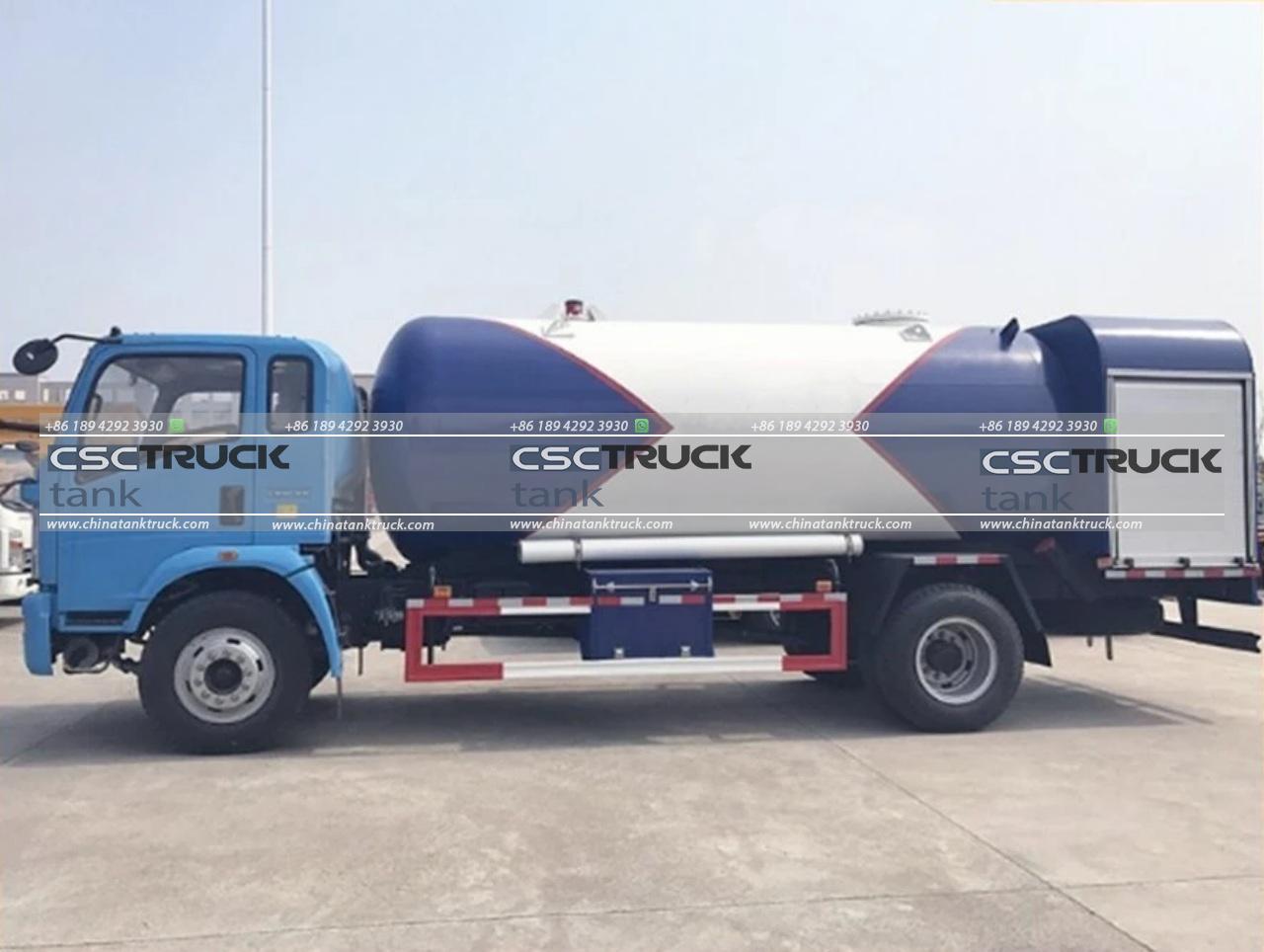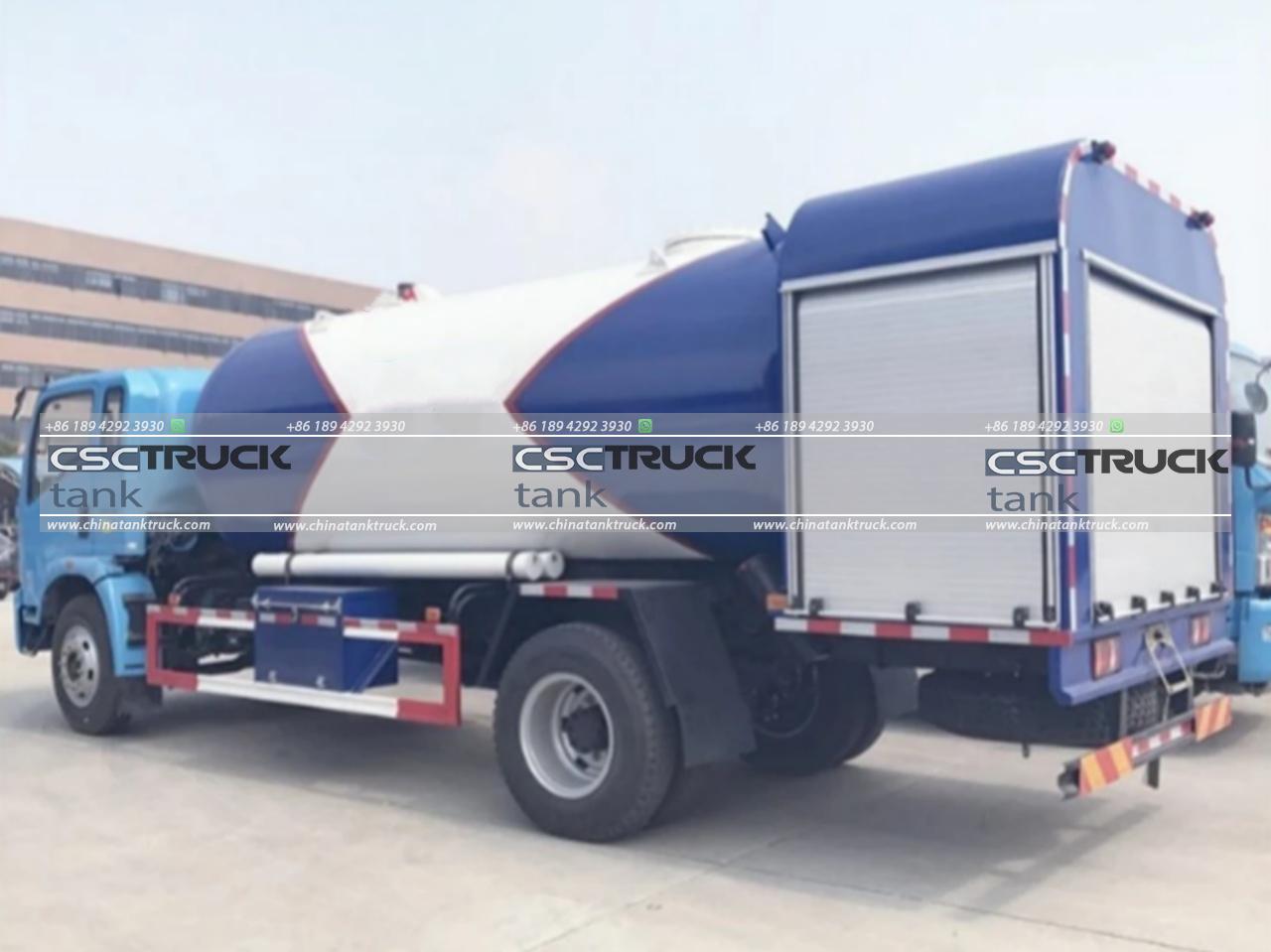What is a Propane Truck?
Propane, a versatile and widely used fuel, is essential in various sectors, from heating homes to powering vehicles. The transportation of this vital energy source requires specialized vehicles known as propane trucks. These trucks are designed to safely and efficiently transport propane from suppliers to consumers, ensuring a continuous supply of this important fuel. In this article, we will explore what a propane truck is, how it functions, and its critical role in the propane supply chain.
1. Understanding Propane
Before delving into the specifics of propane trucks, it’s essential to understand what propane is. Propane is a hydrocarbon gas, typically stored as a liquid under pressure in tanks and cylinders. It is a byproduct of natural gas processing and petroleum refining. Propane is valued for its efficiency and clean-burning properties, making it a popular choice for heating, cooking, and powering certain types of engines.

2. The Role of Propane Trucks
Propane trucks play a crucial role in the distribution of propane. These vehicles are equipped to handle the unique properties of propane, ensuring that it is transported safely and delivered to various locations. The two main types of propane trucks are bulk delivery trucks and cylinder delivery trucks.
– Bulk Delivery Trucks: These trucks are used to transport large quantities of propane in liquid form to residential, commercial, and industrial customers. The propane is stored in a large tank mounted on the truck, and the truck is equipped with a pump and hose system to transfer the propane to the customer’s storage tank.
– Cylinder Delivery Trucks: These trucks are used to transport propane cylinders of various sizes. These cylinders are often used in residential settings for grills, heaters, and other appliances, as well as in commercial and industrial applications. The cylinders are loaded onto the truck and delivered to the customer, where they are either exchanged for empty cylinders or refilled on-site.
3. Design and Features of a Propane Truck
Propane trucks are designed with several key features to ensure the safe and efficient transportation of propane. These features include:
– Propane Tank: The most prominent feature of a propane truck is its tank. The tank is constructed from high-strength steel or aluminum and is designed to withstand the pressures required to keep propane in its liquid state. The size of the tank can vary depending on the truck’s purpose, with bulk delivery trucks having larger tanks than cylinder delivery trucks.
– Pump and Hose System: Propane trucks are equipped with a pump and hose system to transfer propane from the truck’s tank to the customer’s storage tank or propane cylinders. The pump is typically powered by the truck’s engine or an auxiliary motor, and the hose is designed to be flexible and durable, with reinforced materials to prevent leaks.
– Safety Systems: Safety is paramount when transporting propane. Propane trucks are equipped with various safety systems to prevent accidents and leaks. These systems include pressure relief valves, excess flow valves, and emergency shut-off systems. Additionally, the trucks are designed to meet stringent safety standards set by regulatory bodies such as the Department of Transportation (DOT) in the United States.
– Monitoring Systems: Modern propane trucks are equipped with advanced monitoring systems that allow drivers to keep track of the tank’s pressure, temperature, and propane levels. These systems help ensure that the propane is transported safely and efficiently and that the driver is alerted to any potential issues before they become serious problems.

4. The Operation of a Propane Truck
Operating a propane truck requires specialized training and knowledge. The driver must be familiar with the truck’s systems and understand the properties of propane, including its potential hazards.
– Loading the Truck: The first step in the operation of a propane truck is loading the truck’s tank with propane. This is typically done at a propane distribution terminal, where the truck is connected to a large storage tank and filled with propane. During this process, the driver must monitor the tank’s pressure and temperature to ensure that it is filled correctly and safely.
– Transporting the Propane: Once the truck is loaded, the driver transports the propane to the delivery location. The driver must follow all safety regulations and guidelines, including route planning to avoid heavily populated areas and ensuring that the truck is properly maintained.
– Delivering the Propane: Upon arrival at the delivery location, the driver connects the truck’s hose to the customer’s storage tank or propane cylinders. The pump is activated, and the propane is transferred from the truck’s tank to the customer’s tank. The driver must monitor the process closely to ensure that the propane is delivered safely and without leaks.
5. Safety Considerations
Safety is a critical concern when dealing with propane, and propane trucks are designed with numerous safety features to prevent accidents. However, the human element is equally important. Drivers of propane trucks must undergo rigorous training to understand the risks associated with propane and the proper procedures for handling it.
– Handling Emergencies: In the event of an emergency, such as a leak or a fire, the driver must be prepared to act quickly and effectively. Propane trucks are equipped with emergency shut-off systems, and drivers are trained in the proper use of fire extinguishers and other safety equipment. In some cases, the driver may need to evacuate the area and call emergency services to handle the situation.
– Regular Inspections: Propane trucks must undergo regular inspections to ensure that all systems are functioning correctly. This includes checking the tank for any signs of wear or damage, inspecting the pump and hose system, and testing the safety systems. Any issues must be addressed promptly to prevent accidents.

6. Regulatory Compliance
Propane trucks are subject to strict regulations to ensure their safe operation. These regulations cover various aspects of the truck’s design, operation, and maintenance, including:
– Tank Design and Construction: The tanks on propane trucks must be designed and constructed to meet specific standards, including those set by the American Society of Mechanical Engineers (ASME) and the DOT. These standards ensure that the tank can withstand the pressures required to store propane in its liquid form and that it is resistant to damage and leaks.
– Driver Certification: Drivers of propane trucks must be certified to operate these vehicles. This certification typically requires passing a written exam and a practical test and completing ongoing training to stay current with safety regulations and best practices.
– Maintenance and Inspection Requirements: Propane trucks must undergo regular maintenance and inspections to ensure they are safe to operate. These requirements include periodic testing of the tank’s pressure and structural integrity, as well as inspections of the pump, hose system, and safety equipment.
7. Conclusion
Propane trucks are specialized vehicles designed to transport propane safely from suppliers to consumers. They are equipped with advanced systems and safety features to ensure that propane is delivered efficiently and without incident. The operation of a propane truck requires specialized training and a deep understanding of the risks associated with propane. By adhering to strict regulatory standards and following best practices, propane trucks play a vital role in ensuring that this important fuel reaches its destination safely.


